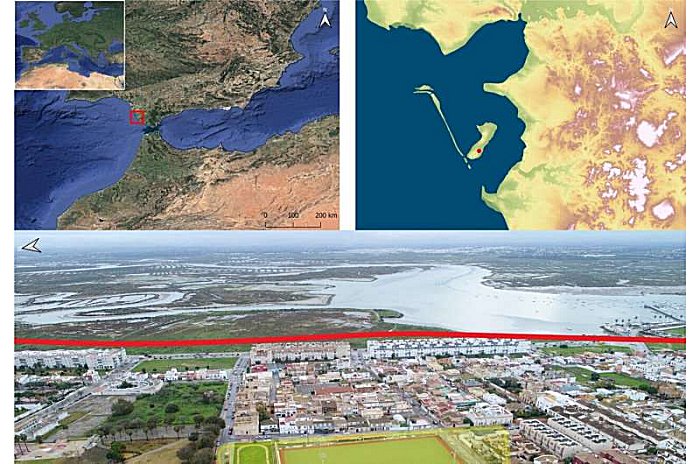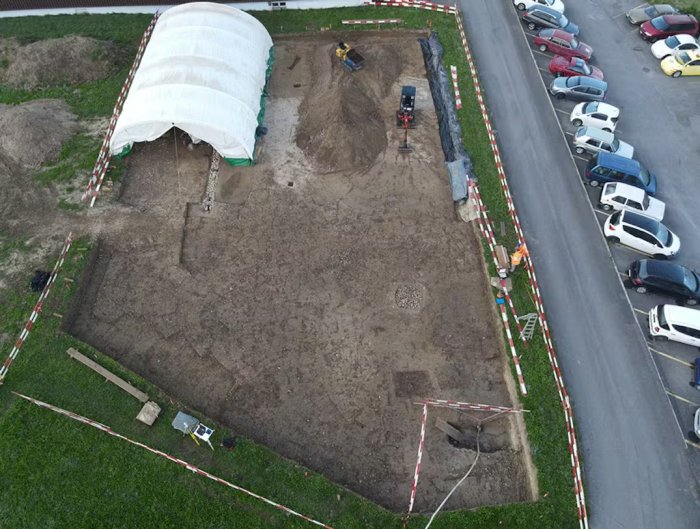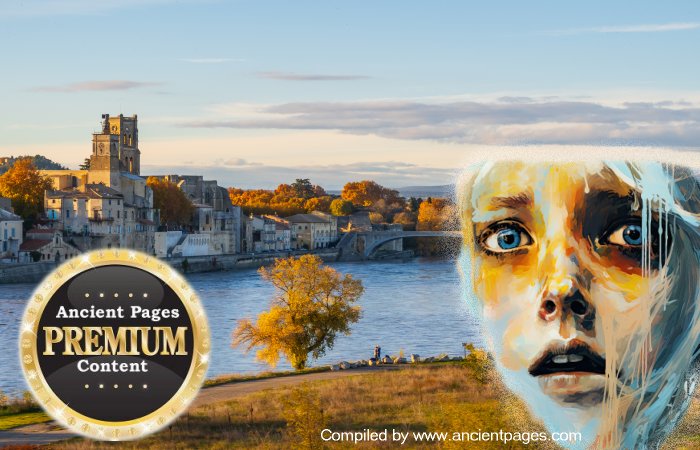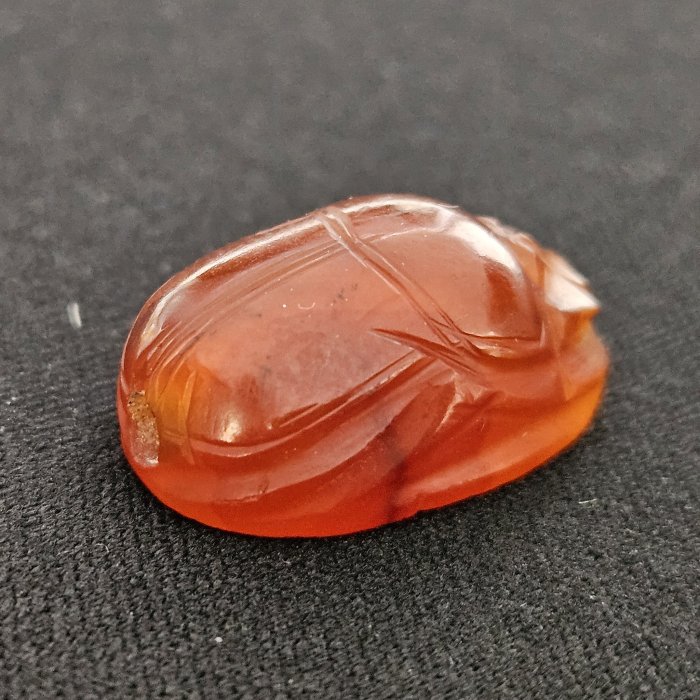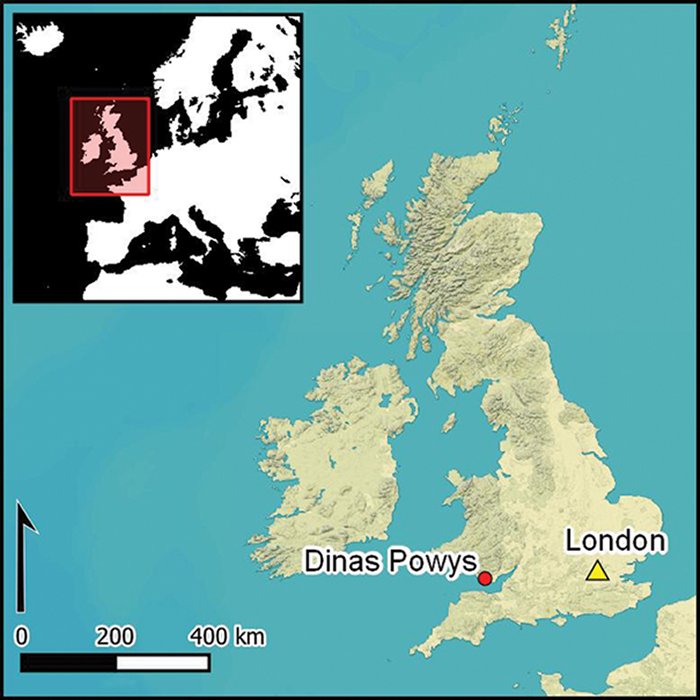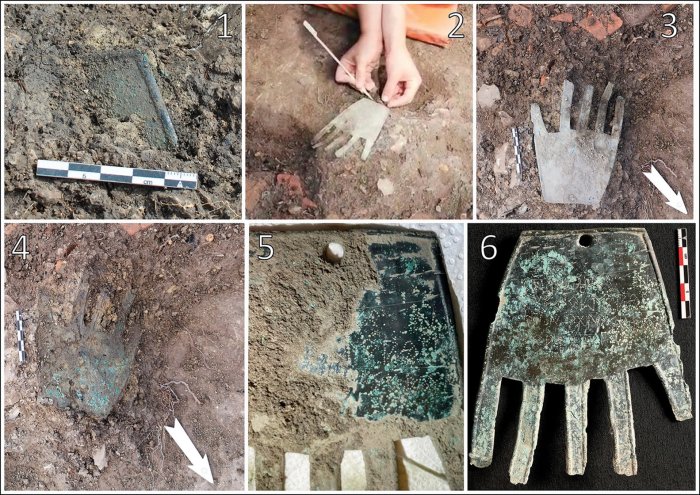Conny Waters – AncientPages.com – Undoubtedly, ancient Greek Gods and Goddesses were highly significant in the ancient city of Aizanoi. During previous excavations, archaeologists discovered the statue heads of Aphrodite, the mythological goddess of love and beauty, and Dionysus, the god of wine, in Aizanoi, a city dating back to 3,000 B.C.
Scientists have now discovered more Greek Gods’ heads, including a completely preserved life-sized man statue. “This statue is almost the only intact statue we have found so far,” archeologists said.
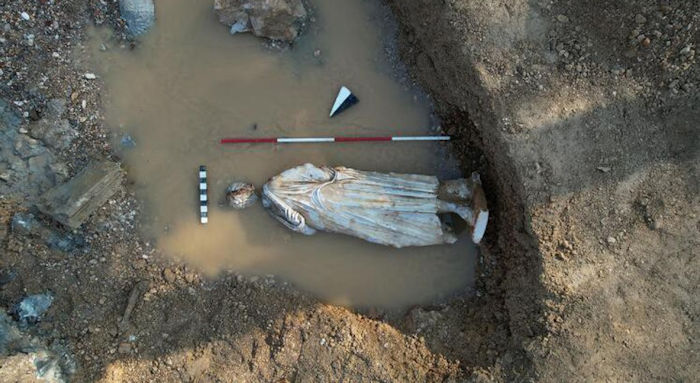
Credit: Kütahya Dumlupınar University
Located 57 kilometers (35 miles) from Kütahya city center, a hometown known for its famous carpets and tiles. Aizanoi had its golden age in the 2nd and 3rd centuries AD and became the center of episcopacy in Byzantine times. The city has a temple built for Zeus, which is the best-preserved temple in all of Anatolia. There are also a large theater and a stadium adjacent to the theater.
During the ongoing archaeological excavations, scientists found heads of the Greek mythology gods Eros, Dionysus, and the demigod Herakles. Additionally, an unknown man statue with a height of 2 meters and 10 centimeters has also been unearthed.
Prof. Coşkun emphasized that the statue they found in the recent excavation was the only wholly preserved statue.
“This statue is almost the only intact one we have found. It is a statue of a man with a height of 2 meters and 10 centimeters, missing only half of its pedestal and one foot. Other parts are completely preserved. I hope that we will find this missing piece in 2023,” Gökhan Coşkun, a Professor from Kütahya Dumlupınar University and also the excavation director, said.
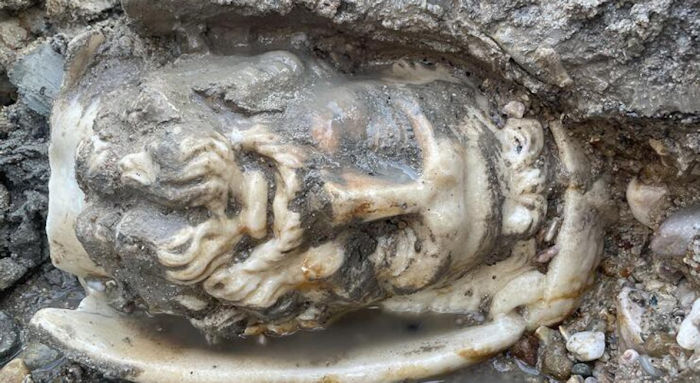
Credit: Kütahya Dumlupınar University
Excavations in the ancient city of Aizanoi have been carried out particularly in the Penkalas Stream, with a team of 80 workers and 20 technical staff. The ancient city, which dates back to 3,000 B.C., is believed to be one of the metropolises of the period with its historical structures, such as theater, stadium, agora, and Zeus Temple.
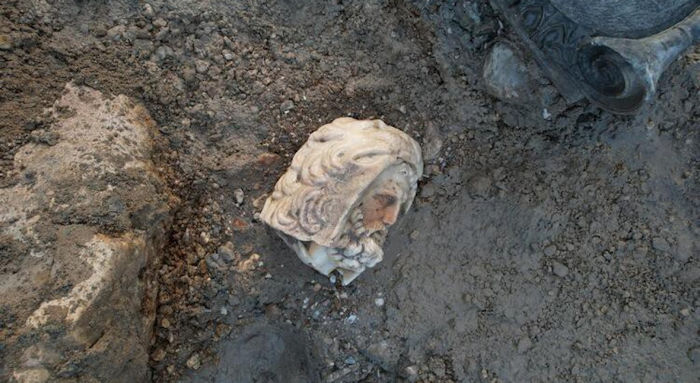
Credit: Kütahya Dumlupınar University
Noting that the restoration of the Roman-era marble bridge, called No: 2, was completed during the excavations in Penkalas Stream, Coşkun said that works have been continuing on the completely ruined bridge, called No: 3.
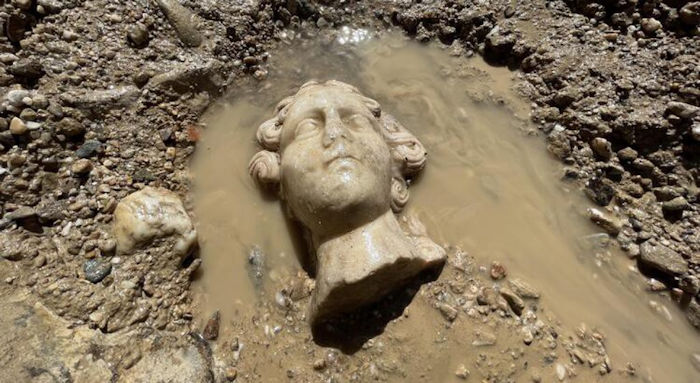
Credit: Kütahya Dumlupınar University
Stating that new artifacts are found every day, Coşkun said, “This year, we found surprising finds that made us very excited during our work in the area where the bridge is located. Since the previous season, we have been finding many large and small pieces of marble sculptures in this area, some of which, if complete, would reach 3 to 3.5 meters in height. This season, we uncovered many blocks of bridge No: 3. Also, we found a sundial and many marble statue pieces,” Hürriyet Daily News reports.
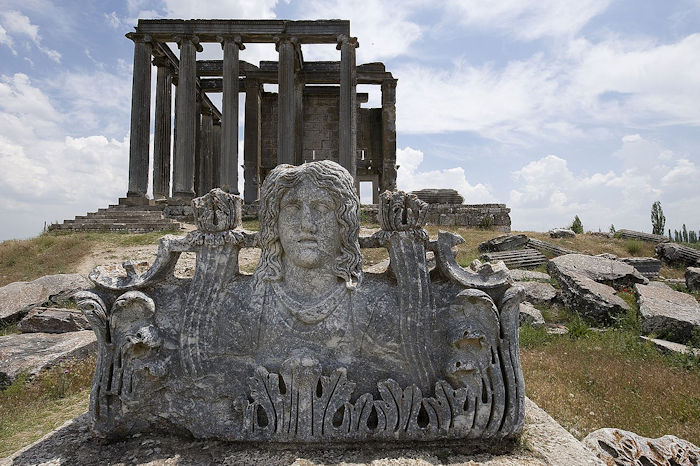
Aizanoi Zeus temple. Credit: Dosseman – CC BY-SA 4.0
As for the other statue heads belonging to Greek mythology, Professor Coşkun said, “Among these is a Dionysus head with a height of approximately 40 centimeters. We also found a Herakles head. In 2020, we found the body of a Herakles statue. But this head does not belong to this body.
See also: More Archaeology News
Therefore, we now have 2 ‘Herakles’ statues in our hands. Hopefully, we’ll find other parts of it in the coming years. Apart from this, there are also statue heads of various gods and goddesses of the ancient Greek pantheon. One of the prominent examples is the Eros head, which is about 20 centimeters high. The artifacts we found in this area are from different periods. Still, we can say that the statue pieces date back 1,800-2,000 years ago,” the Kütahya Dumlupınar University said in a press statement.
Written by Conny Waters – AncientPages.com Staff Writer
